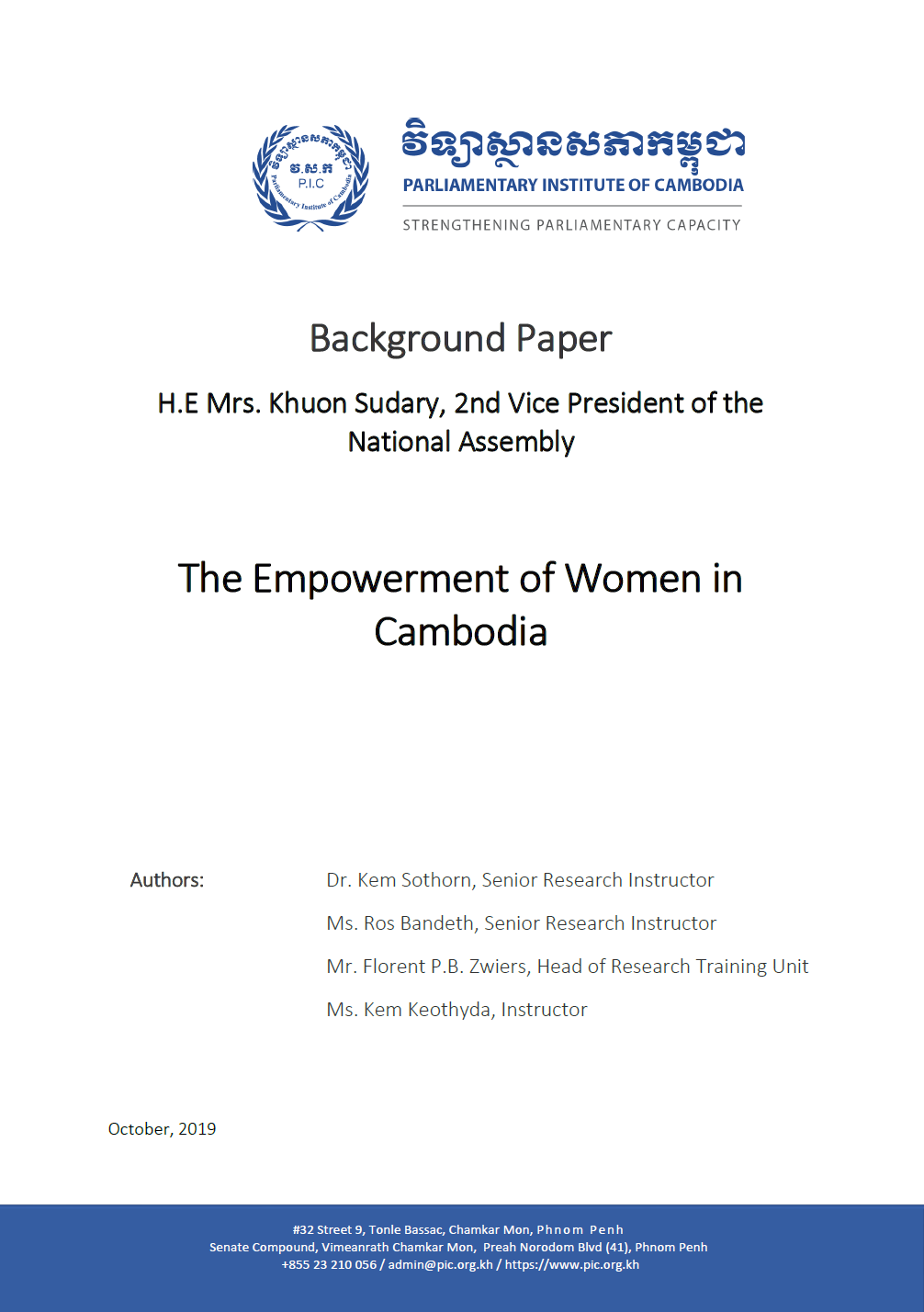
The Empowerment of Women in Cambodia
Publication Year: 2019 / Sources: Parliamentary Institute of CambodiaThe Global Sustainable Development Goals (SDGs) identified Gender Equality and Women’s Empowerment as one of the 17 Goals and stated that it was an effective means to end poverty, protect the planet and ensure that all people enjoy peace and prosperity by 2030[1]. Sustainable Development Goal 5 (SDG 5) was established to “achieve gender equality and empower all women and girls no later than 2030” through ending all forms of discrimination against women and girls[2]
Download: English | Khmer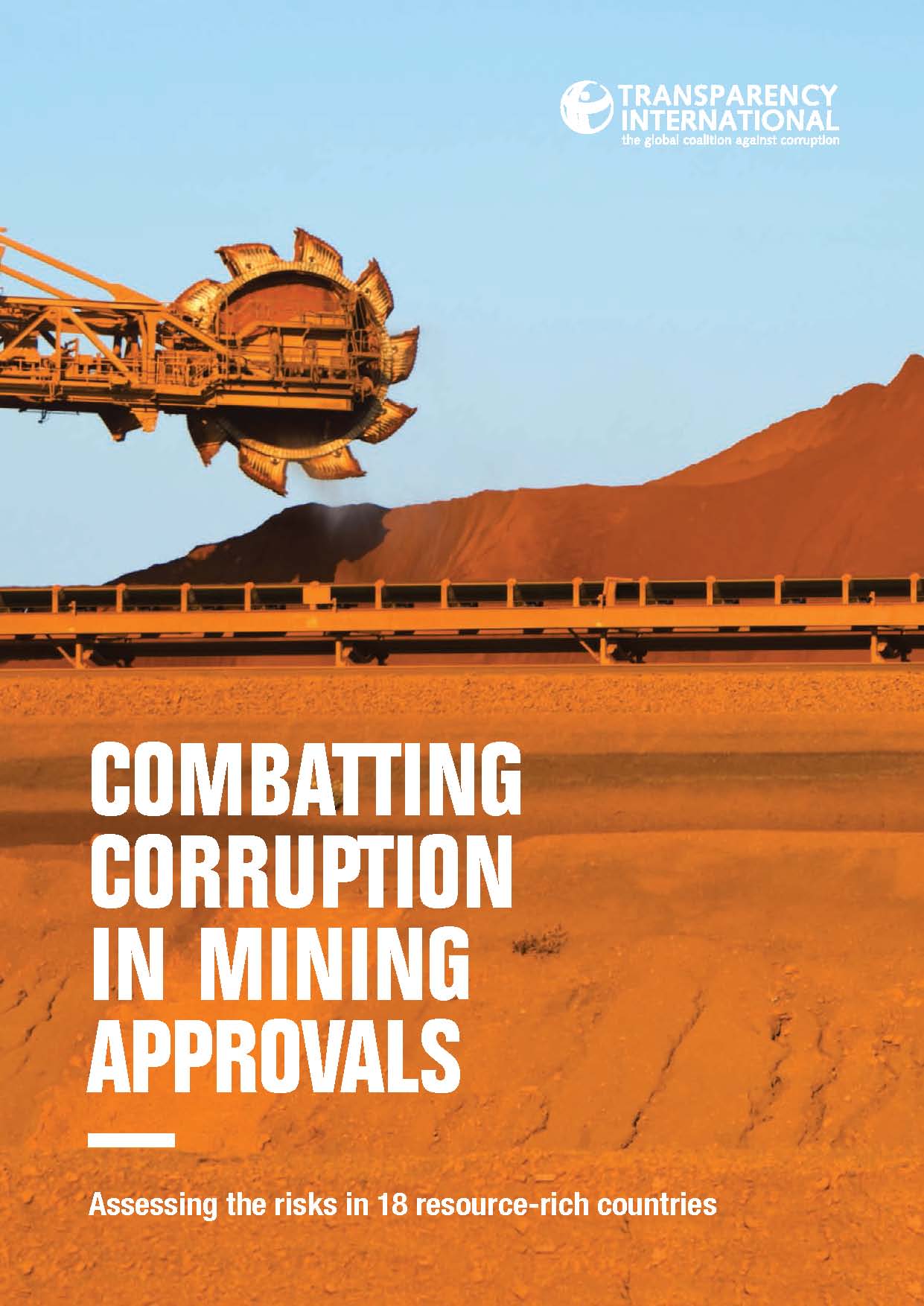
Combatting Corruption in Mining Approvals
Publication Year: 2017 / Sources: Transparency InternationalCombatting Corruption in Mining Approvals (Assessing the risks in 18 resource-rich countries)
Transparency International has assessed the risks that can lead to corruption in 18 resource-rich countries to identify the warning signals as early as possible. This report demonstrates where and how corruption can get a foothold in mining approvals processes before ground is even broken. It presents examples from a range of diverse countries and identifies important roles for government, the mining industry and civil society to identify, prevent and mitigate these risks.
Download: English | Khmer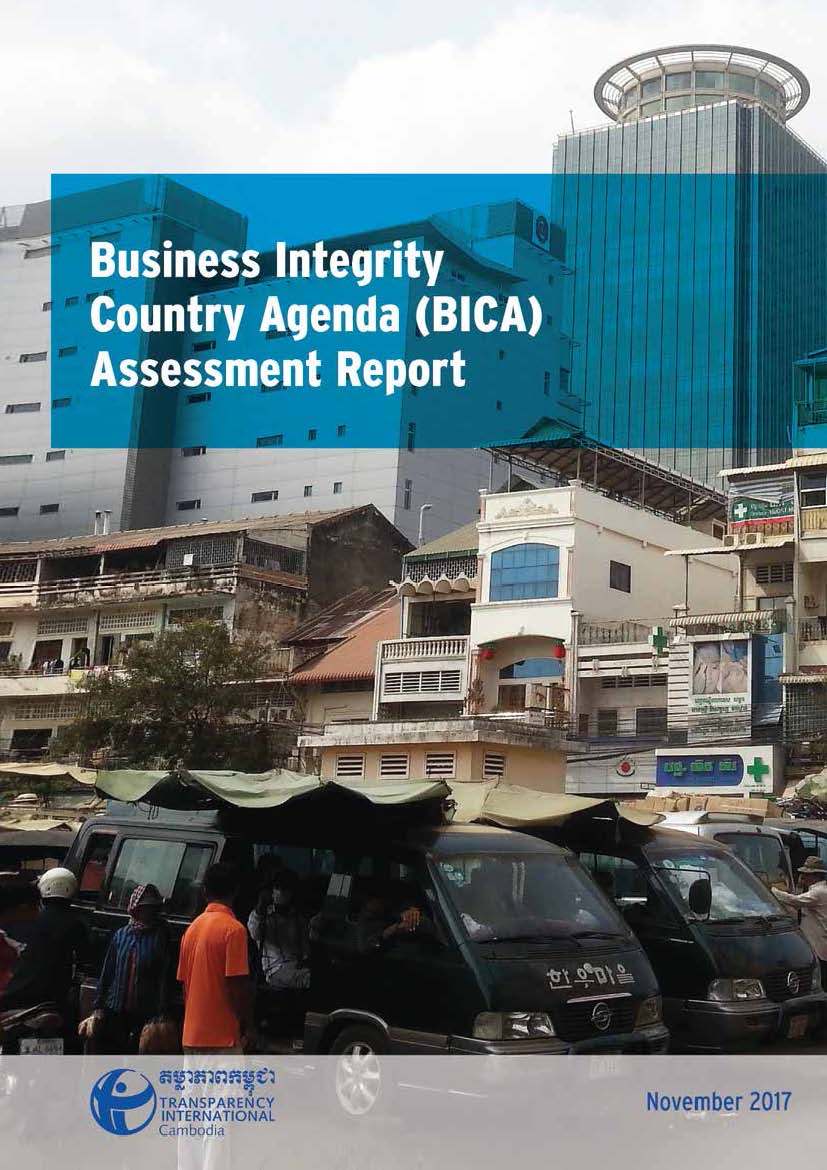
Business Intergrity Country Agenda Assessment Report
Publication Year: 2017 / Sources: Transparency International CambodiaThe BICA Assessment Report is a baseline assessment of public, private and civil society sector efforts to promote business integrity, particularly accountability, transparency, and integrity in business practices. This report seeks to further understand the factors and actions that can increase business integrity in Cambodia, in order to facilitate public, private, and civil society efforts to diminish corruption.
Download: English | Khmer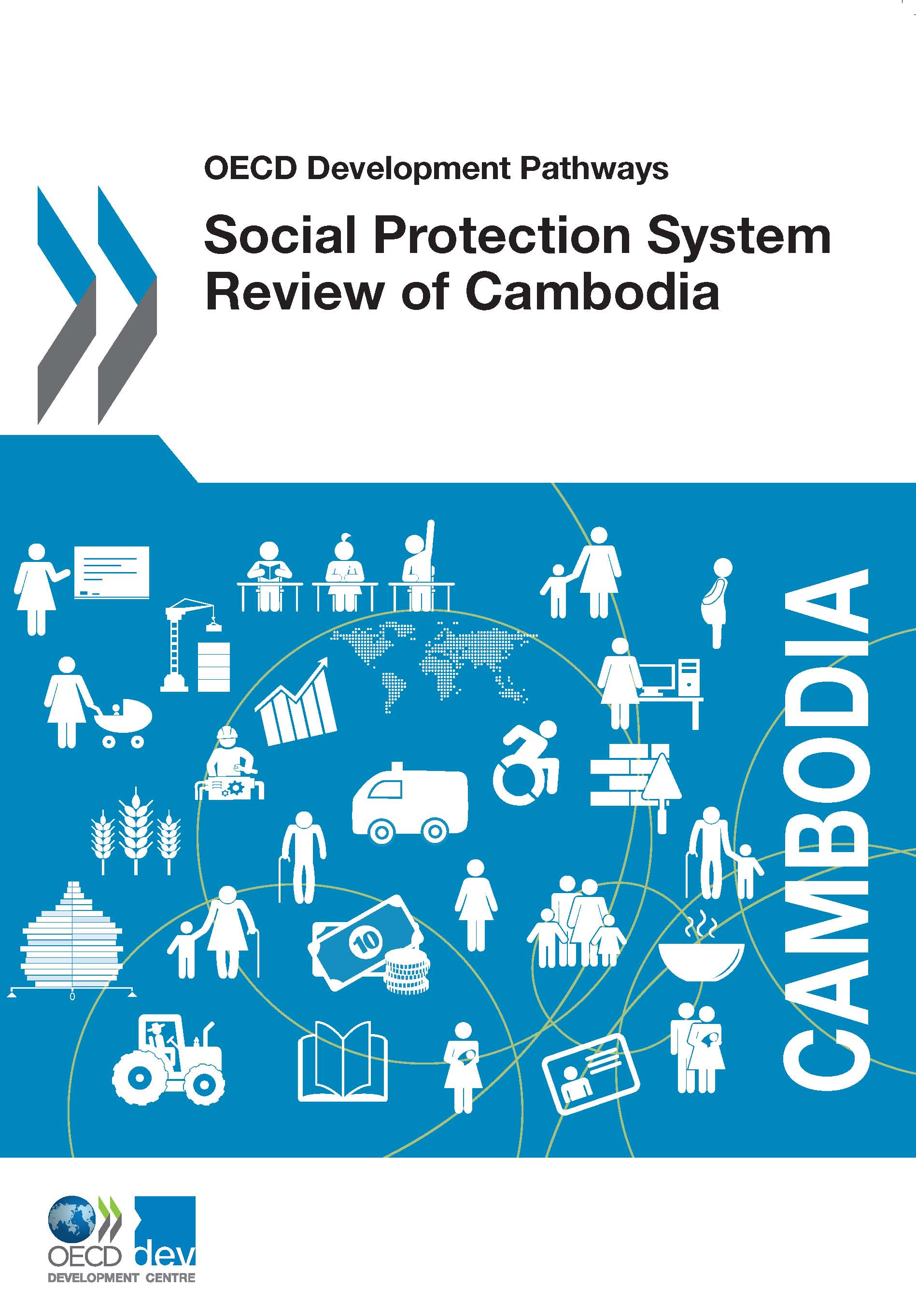
Social Protection System Review of Cambodia
Publication Year: 2017 / Sources: Transparency International CambodiaIn 2017, the Royal Government of Cambodia published a new Social Protection Policy Framework (SPPF), providing an ambitious vision for a social protection system in which a comprehensive set of policies and institutions operate in sync with each other to sustainably reduce poverty and vulnerability.The Social Protection System Review of Cambodia prompts and answers a series of questions that are crucial for the implementation ofthe framework : How will emerging trends affect the needs for social protection, now and into the future? To what extent are Cambodia’s social protection instruments able – or likely – to address current and future livelihood challenges? How does fiscal policy affect social protection objectives?
This review provides a contribution to the ongoing policy dialogue on social protection, sustainable growth and poverty reduction. It includes four chapters. Chapter 1 is a forward-looking assessment of Cambodia’s social protection needs. Chapter 2 maps the social protection sector and examines its adequacy. An investigation of the distributive impact of social protection and tax policy is undertaken in Chapter 3. The last chapter concludes with recommendations for policy strategies that could support the establishment of an inclusive social protection system in Cambodia, as envisaged by the SPPF.
Download: English | Khmer
Tourism Sector Assessment, Strategy, and Road Map for Cambodia, Lao PDR, Myanmar, and Viet Nam (2016-2018)
Publication Year: 2017 / Sources: ASIAN Development BankThis sector assessment, strategy, and road map (ASR) documents strategic investment priorities of the Asian Development Bank (ADB) and the governments of Cambodia, the Lao People’s Democratic Republic (Lao PDR), Myanmar, and Viet Nam in the tourism sector.1 It highlights sector performance, priority development constraints, government plans and strategies, past ADB support and experience, other development partner support, and ADB’s future tourism support strategy for Cambodia, the Lao PDR, Myanmar, and Viet Nam (CLMV). The ASR is linked to and informs ADB country partnership strategies for CLMV. It will be updated as strategic developments and program changes are needed and will help to provide sector background information for investment and technical assistance operations.
Download: English | Khmer
Human Development Report 2016
Publication Year: 2017 / Sources: UNDPThe 2016 Human Development Report is the latest in the series of global Human Development Reports published
by the United Nations Development Programme (UNDP) since 1990 as independent, analytically and empirically
grounded discussions of major development issues, trends and policies.
Additional resources related to the 2016 Human Development Report can be found online at http://hdr.undp.org,
including digital versions of the Report and translations of the overview in more than 20 languages, an interactive
web version of the Report, a set of background papers and think pieces commissioned for the Report, interactive
maps and databases of human development indicators, full explanations of the sources and methodologies used in
the Report’s composite indices, country profiles and other background materials as well as previous global, regional
and national Human Development Reports. The 2016 Report and the best of Human Development Report Office
content, including publications, data, HDI rankings and related information can also be accessed on Apple iOS and
Android smartphones via a new and easy to use mobile app.
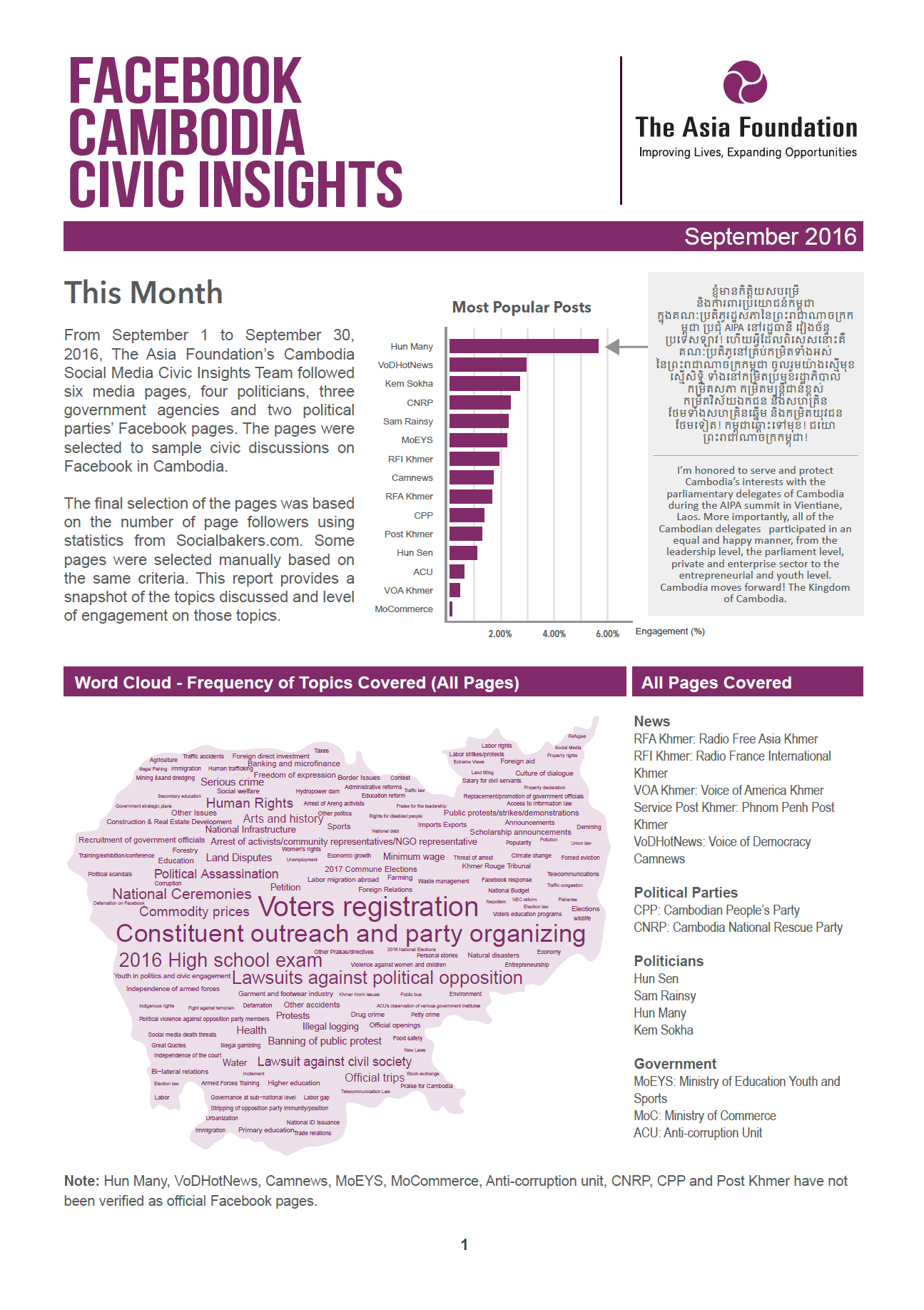
Facebook Cambodia Civic Insights 2016
Publication Year: 2016 / Sources: The Asia FoundationFrom September 1 to September 30, 2016, The Asia Foundation’s Cambodia Social Media Civic Insights Team followed six media pages, four politicians, three government agencies and two political parties’ Facebook pages. The pages were selected to sample civic discussions on Facebook in Cambodia.
Download: English | Khmer
Mobile Phones and Internet Use in Cambodia, 2016
Publication Year: 2016 / Sources: Kimchhoy Phong, Lihol Srou, and Javier Solá (Open Institute, Development Innovations, The Asia Foundation, USAID)This study examines Cambodian phone users’ knowledge, attitudes and practices in relation to Khmer-language reading, writing, and search habits, and identifies the factors motivating (and discouraging) their use of Khmer script. It also attempts to identify changes and trends in the way Khmer-enabled phones are used, including as a means of accessing the Internet — in particular Facebook.
Download: English | Khmer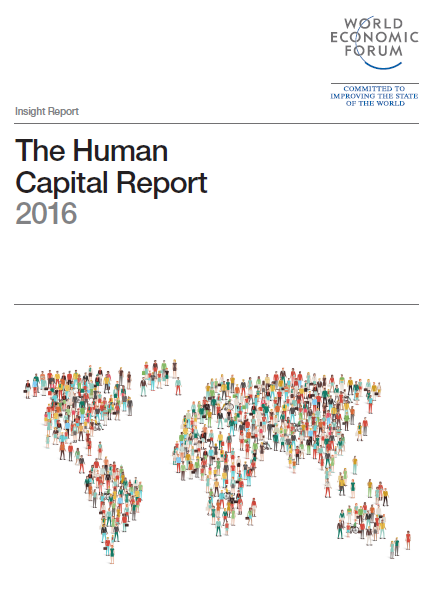
The Human Capital Report 2016
Publication Year: 2016 / Sources: World Economic ForumThe Human Capital Report aims to combine public international statistics, qualitative perception data and big data metrics to provide a comprehensive picture of the situation today as well as the opportunities for the future. The Human Capital Index quantifies how 130 countries are developing and deploying their human capital, and tracks progress over time. It takes a life-course approach to human capital, evaluating the levels of education, skills and employment available to people in five distinct age groups. In addition to the Index, the Report also explores skills in-depth through a unique partnership with LinkedIn and the emerging shape of the labour market on digital platforms, using data from Care.com, Didi Chuxing, Uber and Upwork.
Download: English | Khmer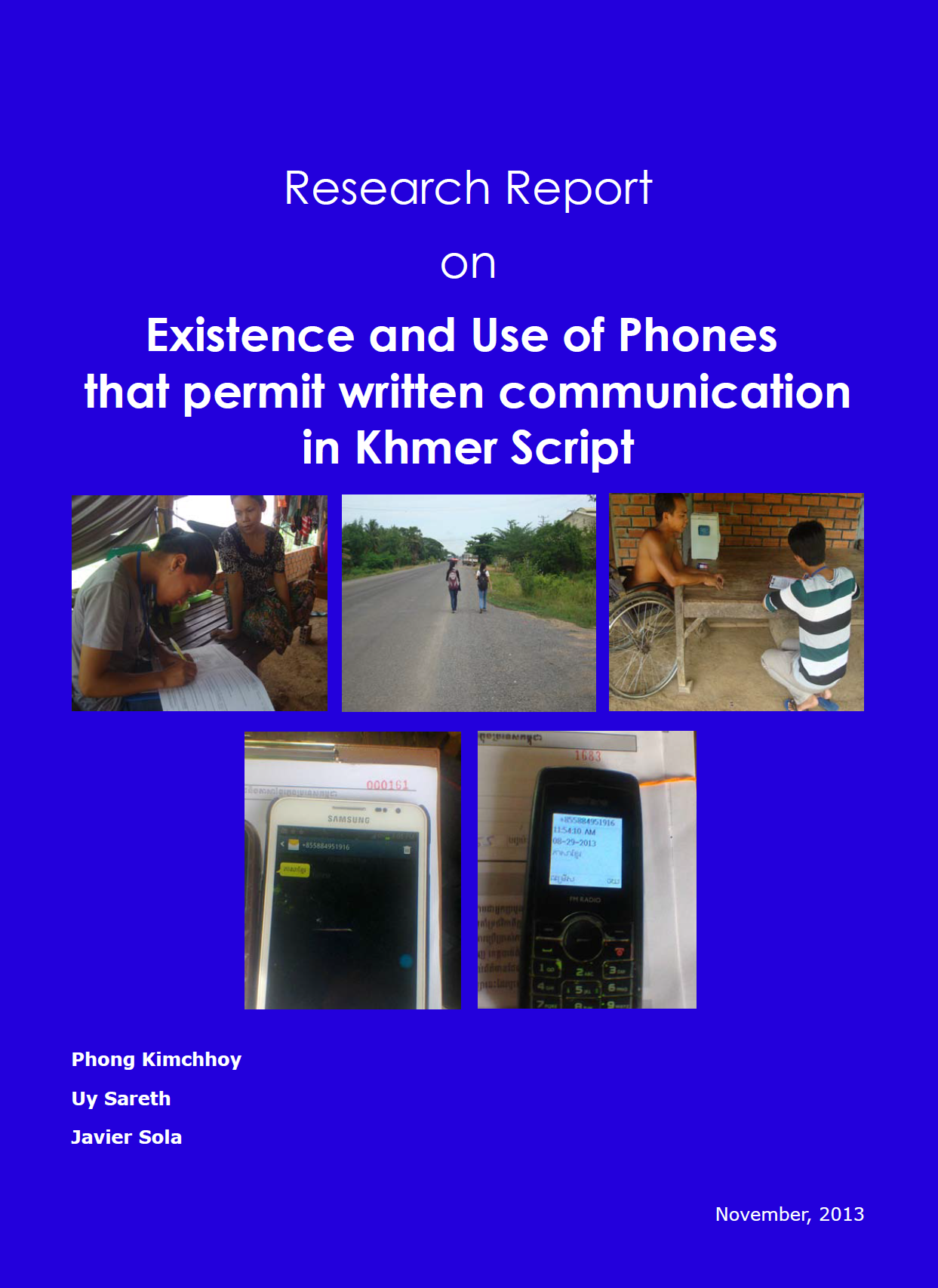
Existence and Use of Phones that permit written communication in Khmer Script
Publication Year: 2013 / Sources: Open Institute (Phong Kimchhoy, Uy Sareth, Javier Sola)This study responds to the need to understand if SMS can be used as a tool for government and civil society organizations to communicate directly with citizens and beneficiaries all over Cambodia, offering to them information and services in Khmer through mobile phones. It also attempts to understand if smart phones are or will become a key device for accessing Internet and social media in Cambodia, as these networks are quickly becoming the main source of information for youth.
Download: English | Khmer